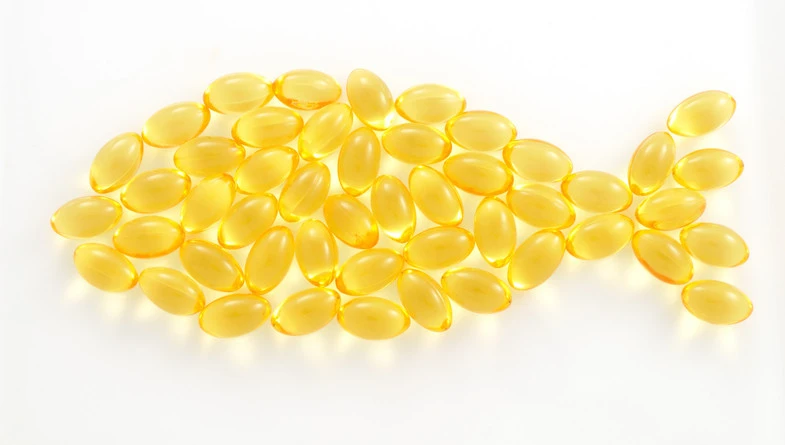How Protein Supports Health and Muscle Growth Explained


Did you know protein is involved in nearly every cellular process in your body? Whether you're fueling intense workouts or just aiming to enhance overall wellness, protein for health is a game-changer. In this post, we break down how protein supports your health beyond just muscle growth. You'll discover the science behind muscle protein synthesis, the benefits of timing your protein intake, and tips on how to choose the best protein for fitness. Let’s dive into the details that matter.
Protein is a macronutrient that plays a role in building and repairing tissues. It is critical for immune function, enzyme production, and even hormone regulation. Every cell in your body relies on protein to keep your body running smoothly. When you fuel your body with the right protein, you're investing in a strong, resilient foundation for overall health.
Beyond muscle repair, protein is essential for metabolism and hormone balance. It contributes to steady energy levels and supports critical bodily functions. This isn’t just about building muscles—it’s about optimizing your entire system. A well-rounded protein intake is key to maintaining long-term health and ensuring your body performs at its peak.
At the heart of muscle growth is muscle protein synthesis (MPS). When you work out, tiny tears form in your muscle fibers. Consuming protein post-workout provides the necessary amino acids to repair these tissues, making them stronger and more resilient. This is why protein benefits for muscle growth are so critical for athletes and fitness enthusiasts.
Not all protein is created equal. High-quality protein sources, such as those found in AceBlend's premium plant proteins and other offerings, come with complete amino acid profiles. Consuming a quality protein source shortly before or after a workout can boost MPS, which is essential for faster recovery and better muscle growth. Timing matters, and knowing when to consume protein can maximize your gains and overall health benefits.
Pro Tip: Protein Timing Matters
Did you know consuming protein within 30 minutes of a workout can maximize muscle recovery and growth? Prioritize high-quality sources like whey protein or lean meats for optimal results.
When it comes to protein, options abound. Animal-based proteins, such as whey and eggs, have long been loved for their rapid uptake. On the other hand, plant-powered proteins like soy, pea, and the innovative profiles from AceBlend offer clean, safe, and optimized nutrition. Each type has its merits depending on your fitness goals and dietary needs. The idea is to choose a protein that not only fuels your workouts but also fits your lifestyle.
Focus on digestibility, amino acid profile, and your personal dietary preferences. Look for proteins that offer bioavailability and support for muscle repair and growth. AceBlend’s range provides options for everyone—from those who need a quick daily protein hit with DAILY Protein (20g) to gym goers who demand INTENSE Protein (30g), or even those who prefer to fortify meals using Unflavoured Protein (26g). The choice should align with your health goals and how you feel best while pursuing them.
Your protein needs change with your activity level, age, and overall health goals. For those leading a sedentary lifestyle, a baseline protein intake is sufficient for daily repair. However, active individuals and athletes often have higher requirements, needing more amino acids to facilitate muscle repair and growth. General guidelines suggest that active individuals typically need between 1.2 and 2.0 grams per kilogram of body weight. Customizing your protein intake will help optimize your body’s natural processes and muscle-building capabilities.
Striking the right balance is paramount. Under-consuming protein could lead to inadequate muscle repair and diminished immune function, while excessive protein might strain the kidneys and create nutritional imbalances. Integrate your protein intake wisely with other macronutrients to maintain a clean, optimized diet that serves your overall health.
Boosting your protein intake doesn’t have to be a chore. Simple shakes with AceBlend’s premium plant proteins, protein-packed snacks, and balanced meals are effective. Consider a morning protein shake blended with fruits or adding unflavoured protein to your daal, gravies, or even baking recipes. These small adjustments can lead to big improvements in your health and muscle support.
There are plenty of misconceptions out there. One myth is that protein powders can't be healthy. In reality, when chosen wisely, they are safe and effective in meeting your nutritional needs. Another common belief is that you can only get protein from animal products. This idea is outdated. Both plant and animal sources have their place in a balanced diet, and modern protein products offer complete amino acid profiles that support your health goals.
Whey protein is often considered the best due to its high leucine content and fast absorption rate.
Active individuals typically need 1.2-2.0 grams of protein per kilogram of body weight.
Yes, combining plant-based protein sources like beans, lentils, and tofu can provide all essential amino acids.
Not necessarily. Protein powders are convenient, but whole food sources can also meet your protein needs.
Excessive protein intake can strain the kidneys and may lead to other health issues. Moderation is key.
Protein is essential for supporting overall health and muscle growth, playing a critical role in muscle repair, metabolism, and long-term wellness. By understanding the types of protein available, the importance of timing, and how much you actually need, you can make informed choices that benefit your active lifestyle. Embrace a protein-rich diet that is as bold and innovative as you are, and let your nutritional choices drive you towards peak performance and optimal health.